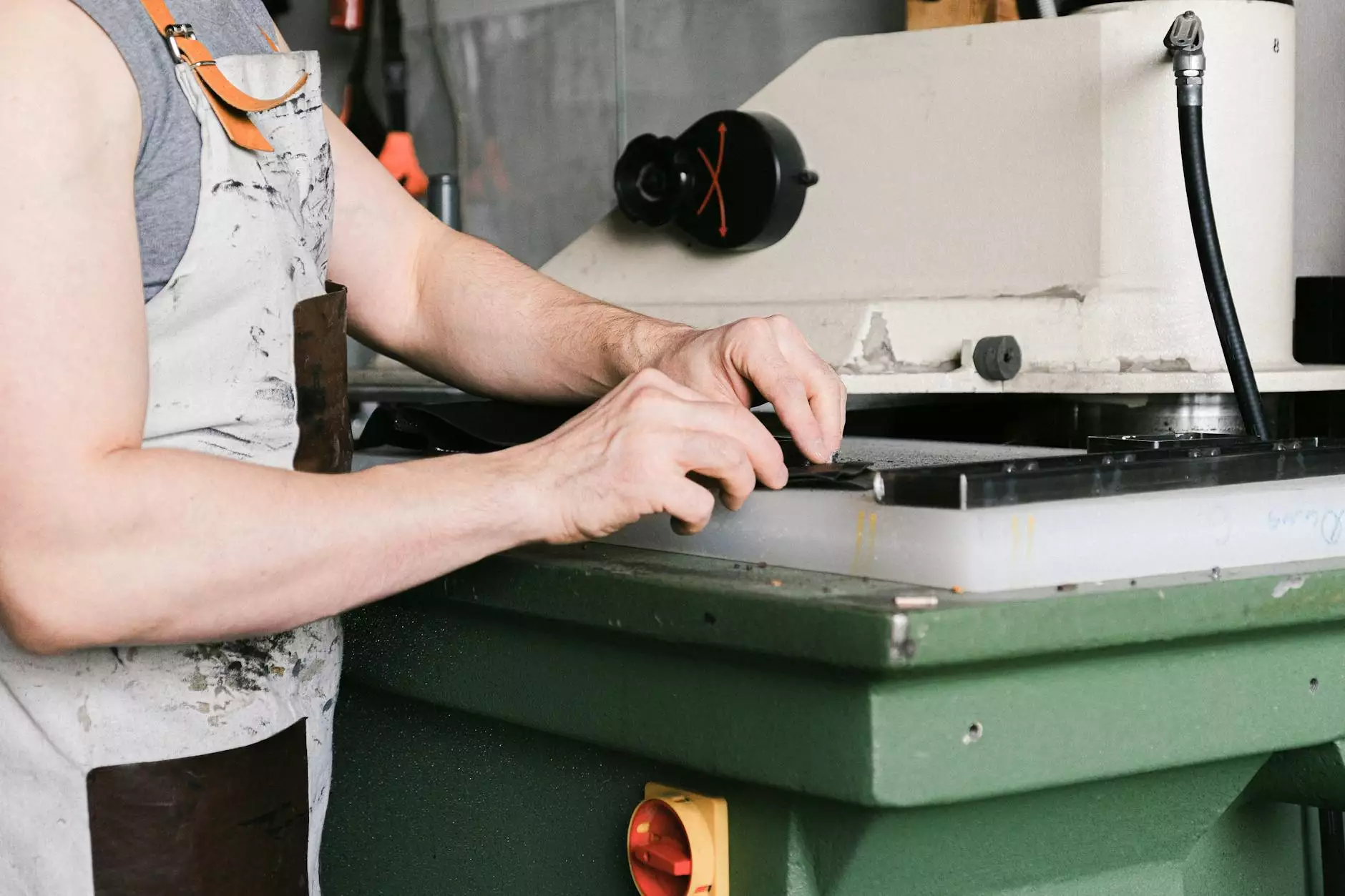The Leading Edge of Car Body Parts Manufacturers

In today's fast-paced automotive industry, the role of car body parts manufacturers is more crucial than ever. As vehicles evolve with advanced technology and consumer preferences shift towards sustainability, these manufacturers are at the forefront of innovation, quality, and efficiency. In this comprehensive article, we will explore the various aspects of car body parts manufacturing, the importance of quality in production, the latest trends, and the future of the industry.
The Importance of Car Body Parts in the Automotive Industry
Car body parts are essential components of vehicles that not only provide structural integrity but also affect the overall aesthetic appeal and performance. These parts include:
- Fenders
- Hoods
- Doors
- Bumpers
- Panels
- Roofing
Each of these components plays a significant role in both safety and efficiency. For instance, a well-designed bumper can absorb impacts better, protecting occupants and reducing repair costs in an accident.
Quality Assurance in Manufacturing
Quality is a non-negotiable aspect of the automotive industry. Car body parts manufacturers must adhere to strict standards and regulations to ensure their products meet the safety and performance requirements stipulated by authorities like the National Highway Traffic Safety Administration (NHTSA) and the International Organization for Standardization (ISO).
To maintain high standards, manufacturers employ various quality control measures including:
- Material Testing: Ensuring that materials used can withstand environmental and mechanical stresses.
- Dimensional Accuracy: Manufacturing processes must guarantee that parts fit precisely within a vehicle's specifications.
- Performance Testing: Subjecting parts to real-world conditions to assess durability and functionality.
- Compliance with Industry Standards: Manufacturers must obtain certifications to prove their products meet necessary guidelines.
Innovative Technologies in Car Body Parts Manufacturing
The integration of technology into manufacturing processes is revolutionizing the industry. Some of the advancements studied and applied by car body parts manufacturers include:
- Additive Manufacturing (3D Printing): This technology allows for rapid prototyping and customization of parts, reducing lead times significantly.
- Robotics and Automation: Automated systems increase efficiency, reduce human error, and enhance safety on the production floor. Robotics streamline repetitive tasks and improve precision.
- Lightweight Materials: The use of materials such as carbon fiber, aluminum, and advanced composites is becoming more prevalent, reducing vehicle weight and improving fuel efficiency.
- Digital Twin Technology: This allows manufacturers to create virtual replicas of physical processes to simulate, predict, and enhance manufacturing outcomes.
Sustainability in Car Body Parts Manufacturing
As the global automotive industry moves towards sustainability, car body parts manufacturers are prioritizing eco-friendly practices. This shift is driven by both regulatory pressures and consumer demands for greener products. Key sustainable practices include:
- Using Recycled Materials: Many manufacturers are now sourcing recycled metals and plastics to produce car body parts, which reduces waste and the environmental impact of raw material extraction.
- Energy Efficiency: Implementing energy-efficient processes and machinery ensures lower carbon footprints during production.
- Sustainable Supply Chains: Manufacturers are more conscientious in choosing raw material suppliers who follow sustainable practices.
- Life Cycle Assessment: Companies are increasingly evaluating the environmental impact of car body parts throughout their life cycle, from production to disposal.
Challenges Faced by Car Body Parts Manufacturers
While the future looks promising, car body parts manufacturers face several challenges:
- Global Supply Chain Disruptions: Factors like geopolitical tensions and pandemics can greatly affect the availability of raw materials.
- Trade Regulations: These can impose tariffs and restrictions that impact international operations.
- Technological Transition: Keeping up with the rapid advancements in technology necessitates substantial investment in R&D and training.
- Consumer Preferences: As market demands shift towards customization and eco-friendliness, manufacturers must adapt quickly to meet these needs.
The Future of Car Body Parts Manufacturing
The automotive landscape is changing, and so is the role of car body parts manufacturers. The future holds several promising trends, including:
- Increased Use of Automation: As technology advances, manufacturers will rely more heavily on automation to improve consistency and reduce production costs.
- Enhanced Customer Engagement: Utilizing digital platforms for direct communication with customers will allow manufacturers to better understand consumer needs and preferences.
- Collaboration with Startups: Partnerships with technology startups can facilitate rapid innovation and keep manufacturers competitive.
- Emphasis on Safety Features: Future car body parts will increasingly incorporate innovative safety technologies, including advanced crumple zones and pedestrian protection systems.
Conclusion
The role of car body parts manufacturers is essential in shaping the future of the automotive industry. With a focus on quality, innovation, and sustainability, these manufacturers are not just keeping up with trends; they are setting them. By embracing advanced technologies and adopting sustainable practices, they are paving the way for a safer and more efficient automotive world.
For those seeking high-quality car body parts and supplies, look no further than imautoparts.com, where you can find a wide range of products backed by the commitment to excellence that defines leading manufacturers in the industry.









